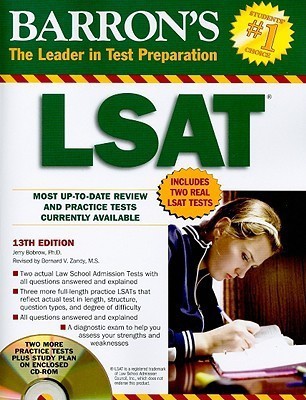-
Recent Posts
- IIT JEE Test: Comprehensive Guide for Aspiring Engineers
- CFA Certification: The Key to Advancing Your Finance Career
- Elevate Your Career with Okta Certification
- The Definitive Guide to CPA Certification: Elevating Your Accounting Career
- The Ultimate Guide to FRM Certification: Unlocking Career Success in Financial Risk Management
-
Follow Us
-
Archives
- July 2024
- June 2024
- May 2024
- May 2023
- October 2022
- July 2022
- April 2021
- August 2020
- July 2020
- July 2019
- June 2019
- January 2019
- December 2018
- September 2018
- August 2018
- June 2018
- April 2018
- February 2018
- January 2018
- August 2017
- July 2017
- April 2017
- December 2016
- November 2016
- October 2016
- September 2016
- August 2016
- July 2016
- June 2016
- May 2016
- April 2016
- March 2016
- February 2016
- January 2016
- December 2015
- November 2015
- October 2015
- September 2015
- August 2015
- July 2015
- June 2015
- May 2015
- April 2015
- March 2015
- February 2015
- September 2014
- August 2014
- May 2014
- April 2014
- February 2014
- January 2014
- December 2013
- October 2013
- September 2013
- June 2013
- May 2013
-
-
Categories
Tags
accountability admissions application Business Because business school CAT CAT Mock Test CET CFA CFA study schedule CPA entrepreneurship free study material gmat GMAT goal score gmat study partner gmat tutor gre INSEAD interview Ivy League linkedin LSAT magoosh MBA MBA entrance exam MCAT study partner mock test motivation practice questions recipe snacks start-up study study buddy study group studypal study partner study spots Study Tips superfood syllabus test prep time mamangement TimePrep
Your Expert Guide to Self-Preparation
For LSAT, GRE, GMAT, MCAT, and PCAT
By Jay Cutts
Lead Author, Barron’s LSAT and MCAT Prep Materials
Happy July!
REMEMBER:
The 3 Keys to Self-Prep Success:
- Well-planned study schedule
- High quality prep materials
- Peer support
If you’re still not doing well enough, look for a qualified tutor
THIS MONTH: Let’s take a quick look at where things stand for you.
MCAT/PCAT: You should be devoting as much time as possible to your prep now and for the rest of the summer. By mid-July you should take a mock test to see how you’re scoring. If you haven’t made enough progress, it may be time to look for a qualified tutor to coach you. Most people do learn best with at least a little bit of coaching. It is important that a tutor be experienced and qualified. If possible, find someone with multiple years of experience. Do work with the Barron’s MCAT book. It thoroughly reviews all of the strategy for timing, testing, and problem solving.
Sign up to take your test as late in the season as possible to give yourself maximum study time. I suggest late August or the September tests.
LSAT: You will probably need to take the LSAT no later than December. Take a mock test mid-month. If you’re not getting close to a winning score, consider the STEPS to the LSAT program. For a minimal cost it will boost your self-prep with a better study structure, advanced instruction, and connection with other STEPS students.
GRE/GMAT: You may need to take your test as early as October, though some deadlines may allow you to take the test as late as next February or March. By mid-month take a mock test. If you are not scoring where you need, look for a qualified tutor. See my notes about tutors above under MCAT/PCAT.
PREP HINTS:
This month we’re talking about reading comp (RC) which is on all the tests. If you didn’t see my February blog on setting up the RC passage, check that out now.
Once you’ve learned to identify the heart of a passage (the dichotomy, or conflict between two elements) and can analyze the structure of the passage, your next task is to learn tools for working the questions.
When you begin a question, take enough time to orient yourself to it. Is it a detail question or a Big Picture question? Do you understand what the question is asking? Many wrong answers are due to having misunderstood the question stem.
On harder questions most test takers find that they are down to two possible answers and then can’t figure out which one is right. Often, even when you look up the answer, it’s still not clear why their answer is better than yours. Remember that it’s never that an answer is just more elegant. One of those answer choices has a fatal flaw.
To dig deeper you can use a tool that I call the Adversarial Approach. Usually you like one answer choice better than the other, so you already have a bias, which prevents you from thinking clearly. Take the answer that you like and attack it. Try hard to find something wrong with it. You might see something you didn’t see before.
Then take the answer you didn’t like and try to prove that it’s correct. Again, you might see something you didn’t see before. This gives you a much better chance of getting to the right answer and finding the fatal flaw.
The Adversarial Approach can also be used on almost any other type of question in any of the tests.
Next month we’ll talk Logical Reasoning, which is on the LSAT and the GMAT (as Critical Reasoning)
Jay Cutts is the director of the Cutts Graduate Reviews and lead author of the Barron’s LSAT Prep Book, Barron’s MCAT Prep Book, and Barron’s MCAT Flash Cards. He has helped thousands of students get into graduate and professional programs since 1990.
He is the creator of the STEPS to the LSAT self-study support program.
Mr. Cutts offers free admissions planning help at:
Prelaw, Premed and Other fields
Comments are closed.

